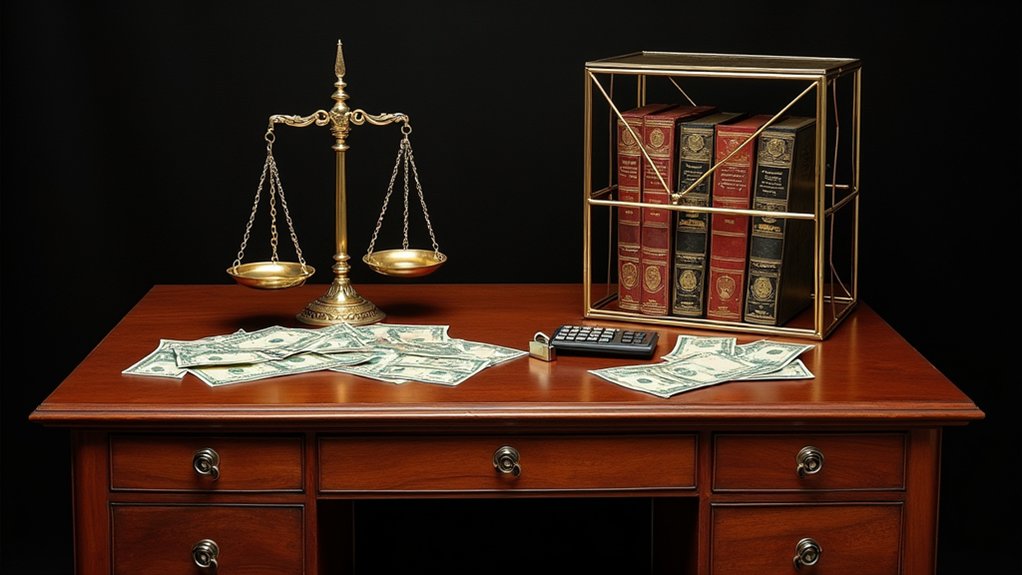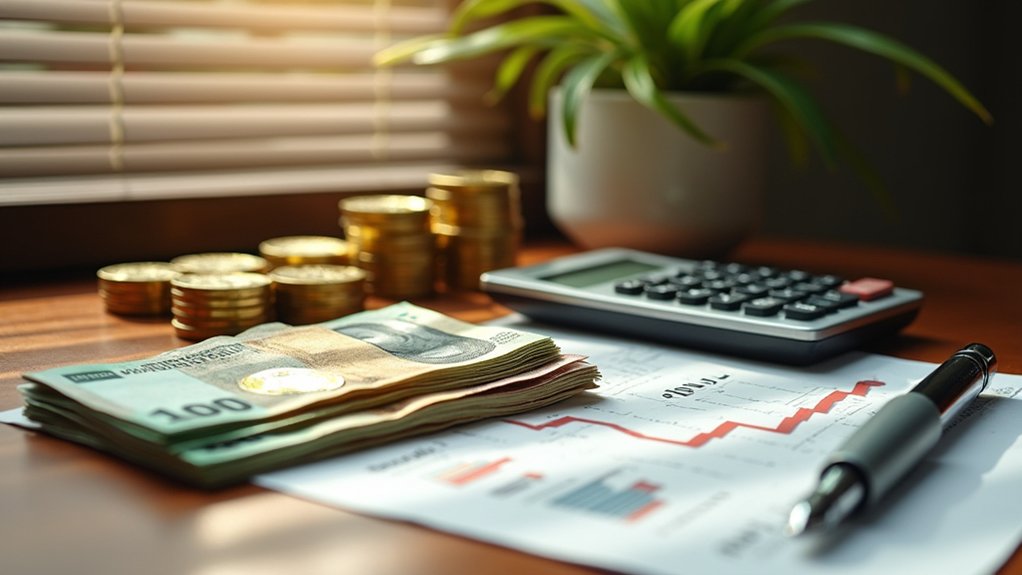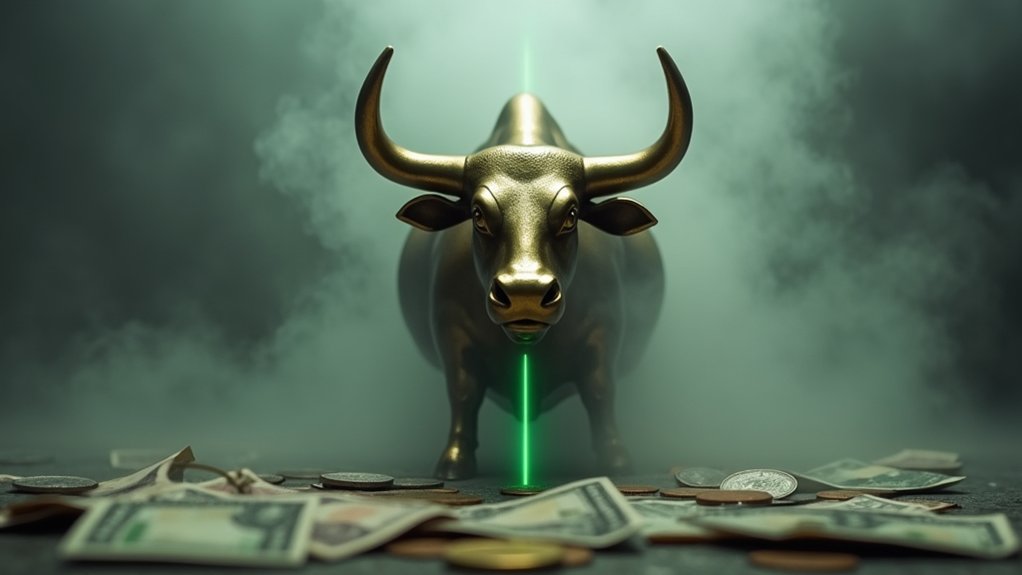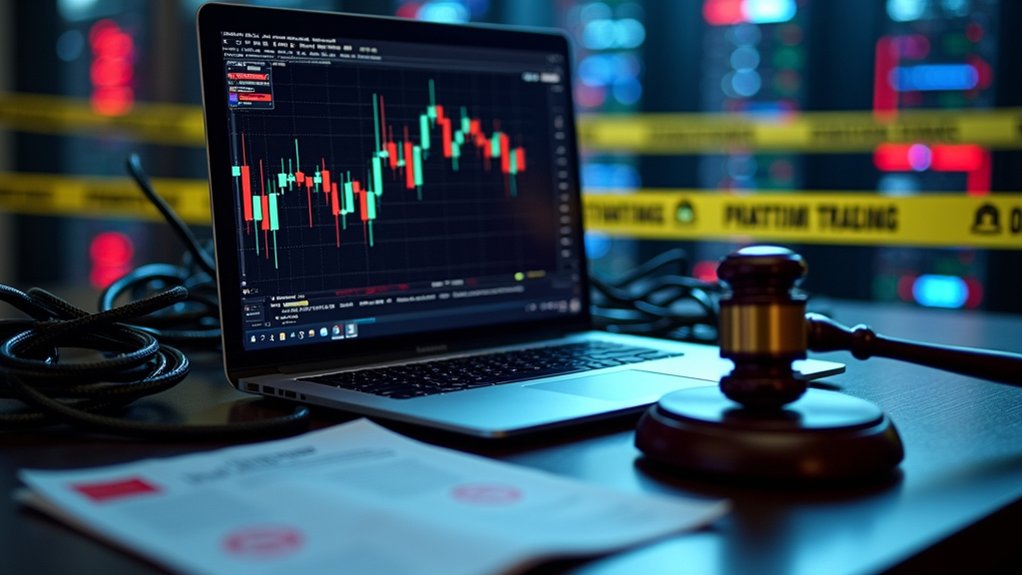Forex trading regulations look completely different depending on where someone lives. In the United States, the CFTC and NFA enforce strict rules requiring brokers to register, hold twenty million dollars in capital, cap leverage at fifty-to-one for major pairs, and segregate client funds from operational accounts. Meanwhile, African markets operate with far less oversight—sometimes none at all—offering higher leverage but also creating a minefield of potential scams. These regulatory extremes create wildly different trading environments, and understanding what's actually happening behind the scenes reveals why.

Across Africa, forex traders operate in a regulatory landscape that bears little resemblance to the tightly controlled American market—and that's both a blessing and a curse. The United States has built what might be the most suffocating retail forex environment on earth. The Commodity Futures Trading Commission and National Futures Association don't just regulate—they gatekeep. Hard.
The CFTC and NFA don't just regulate the American forex market—they've turned protection into suffocation.
Under the Commodity Exchange Act, every broker touching American retail forex must register with both the CFTC and NFA. No exceptions. The Dodd-Frank Act of 2010 tightened the screws even further, adding layers of restrictions that supposedly protect traders but also drove countless brokers out of the U.S. market entirely. The result? A handful of approved operators and a system that treats retail traders like children who can't be trusted with sharp objects.
The capital requirements alone tell the story. American forex brokers must maintain a minimum of twenty million dollars just to keep their doors open. Twenty million. That's not startup money—that's fortress-building money. Client funds must be segregated from operational accounts, reported on regularly, and made visible through the NFA's BASIC database. Transparency, sure. But also a massive barrier to entry that keeps the club small and exclusive.
Then there's leverage, capped at fifty-to-one for major pairs and twenty-to-one for everything else. Security deposits sit at two percent for majors, five percent for non-majors. Negative balance protection exists, which sounds generous until you realize it's the government deciding how much risk you're allowed to take with your own money. Every fee, every commission, every conflict of interest must be disclosed. Promotional materials get pre-approved. It's regulatory theater taken to its logical extreme.
For African traders, this American model is mostly irrelevant. Brokers operating across Nigeria, Kenya, South Africa, Ghana, Egypt, and dozens of other countries don't answer to the CFTC. Many offer leverage ratios Americans can only dream about—or have nightmares about, depending on your perspective. Regulation varies wildly. Some countries have functioning oversight. Others have none. The freedom cuts both ways: more opportunity, more danger.
The U.S. system eliminates most scams through sheer bureaucratic weight. Only registered futures commission merchants or retail foreign exchange dealers can act as counterparties to American retail customers. Everything else is illegal, and enforcement is real. Individuals soliciting forex customer orders must register as Associated Persons and receive approval from the NFA before they can legally operate. The NFA operates as the industry-wide self-regulatory organization for the U.S. derivatives market, funded entirely through membership dues rather than taxpayer money. But that safety comes at a cost—limited choices, lower leverage, and a market structure designed to protect you whether you want it or not. African traders face the opposite problem: too many choices, too little protection, and the constant need to separate legitimate brokers from outright thieves.
Common Questions
Can I Legally Trade Forex in My African Country Without a License?
Trading forex legally in most African countries doesn't require a personal trader's license—that's for brokers.
South Africa, Kenya, and Nigeria allow individual trading without licensing. But here's the catch: you must use a regulated broker. South Africa's FSCA, Kenya's CMA, and Nigeria's SEC set these rules.
Ghana's still figuring things out. Some countries have zero framework, which is risky territory.
Check your specific country's regulations because “no rules” doesn't mean “legal and safe.”
Are Offshore Brokers Accepting African Clients Operating Legally in My Jurisdiction?
Most offshore brokers accepting African clients aren't operating legally in those jurisdictions. They hold licenses from places like Belize or Seychelles—which mean nothing to regulators in Nigeria, Kenya, or South Africa.
Local laws typically require brokers to register domestically. The FSCA, CMA, and SEC have all issued bans against unlicensed foreign brokers.
Sure, these offshore outfits will take African money, but they're skirting local law. Legal standing? Basically zero.
How Do Capital Controls Affect My Ability to Withdraw Forex Profits?
Capital controls can slam the brakes on withdrawals hard.
Many African countries impose limits on how much foreign currency leaves, require mountains of paperwork, or force conversion to local currency at lousy official rates.
Nigeria, Zimbabwe, Algeria—all famous for this.
Traders face delays, extra fees, unfavorable spreads, and sometimes outright prohibitions during crises.
Profits can get trapped.
Banks charge more.
Some governments audit transactions randomly.
Breaking rules? Fines or worse.
It's a real headache for moving money out.
Which African Regulators Cooperate to Protect Traders From Cross-Border Scams?
South Africa's FSCA, Mauritius FSC, Kenya's CMA, and Seychelles FSA lead regional coordination efforts. SADC members share intel on cross-border fraud. West Africa's WAEMU framework pushes regulatory cooperation too. Nigeria's CBN and SEC join intelligence exchanges. These regulators sign MoUs to track scammers hopping borders.
Reality check: fragmented systems and weak infrastructure mean cooperation sounds better on paper than in practice. No continent-wide watchdog exists, so coordinated protection remains patchy at best.
Do I Pay Tax on Forex Earnings in African Countries?
Yes, forex earnings are taxable across African countries, though rates and rules vary wildly.
South Africa hits traders hardest—18% to 45% income tax or up to 18% CGT for long-term positions.
Kenya charges individuals up to 35%, companies 30%.
Nigeria applies a flat 10% capital gains tax on net profits.
Record-keeping matters everywhere.
Deductions exist in some nations for trading costs, but compliance isn't optional.
Miss declarations, face penalties—simple as that.









